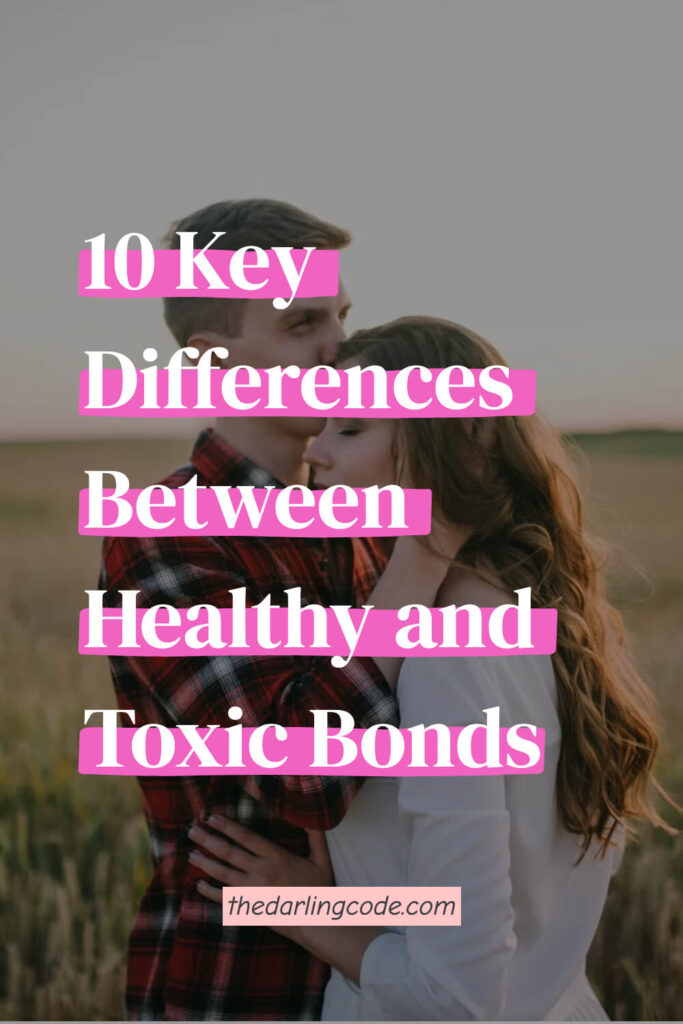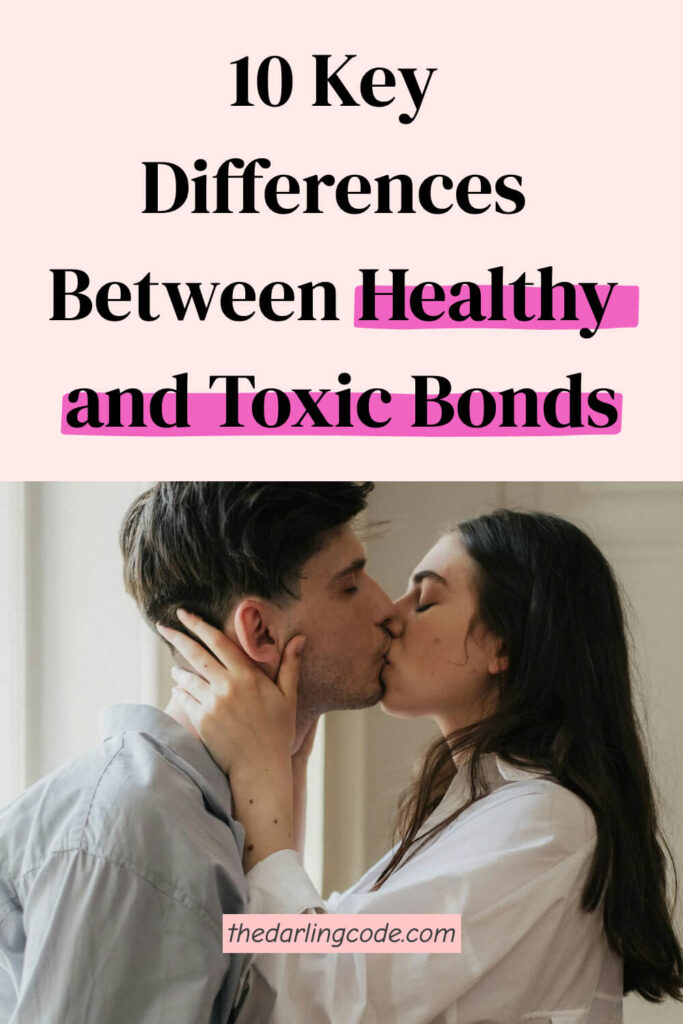10 Key Differences Between Healthy and Toxic Relationships
The experiences shared in this article are based on real emotional journeys, but all personal details are anonymized and used with the explicit written permission of the clients. Any resemblance to actual persons, living or dead, is purely coincidental. We are committed to treating all client stories with the utmost confidentiality and respect.
The Text Message That Made Me Rethink Everything
Let’s rewind to a rainy Thursday evening last fall. I was curled up on my couch with a chai latte, scrolling through client messages, when one stopped me mid-sip: “Vivienne—how do I know if it’s normal to feel this lonely in a relationship?”
The sender, a 28-year-old teacher, described nights spent staring at her partner’s silent back in bed, the way she’d started rehearsing conversations in the shower that never actually happened.
Her words unearthed a memory I hadn’t revisited in years: my own 20th birthday dinner, where I sat across from someone who spent two hours critiquing my career choices while my untouched tiramisu melted into a puddle of cream.
I remember thinking, “This is just how relationships are, right? You tolerate the bad to get the good?”
Here’s what I wish I’d known then: Healthy love shouldn’t feel like a constant negotiation between your peace and your connection.
Through coaching hundreds of clients (and doing my own messy emotional homework), I’ve identified 10 make-or-break distinctions between relationships that nurture you and those that chip away at your spirit.
Let’s dive in.
Save this article for later—Pin it to Pinterest and come back when you need it! 📌

1. Open Communication vs. Silent Battles
Healthy: Imagine you’re planning a weekend trip. Your partner says, “I’m excited, but I’m worried about the budget. Can we brainstorm affordable options?”
Toxic: They agree to the trip, then sabotage it last-minute with “Why do you always make me spend money? You know I’m broke!”
The core difference? Healthy communication names the problem; toxic communication weaponizes it.
What I’ve seen work:
- Use the “Sandwich Method” for tough conversations:
- “I love how adventurous you are about travel…”
- “…but when plans change suddenly, I feel anxious.”
- “Could we create a shared calendar for big decisions?”
Client story: Grace, a graphic designer, nearly left her partner over his “harmless” habit of canceling plans via text.
Through coaching, they implemented a “no breakup-level conversations over SMS” rule.
Two years later, they’re planning their wedding—with a shared Google Calendar.
2. Growth Together vs. Stagnant Resentment
Healthy: You watch documentaries about couples’ therapy and joke, “Should we take up salsa dancing before we need this?”
Toxic: You realize you haven’t tried anything new together since the pandemic sourdough phase.
Relationships aren’t time capsules—they’re living ecosystems.
I advise clients to track their “growth ratio”: For every criticism, offer three specific affirmations.
Try this “Relationship Garden” exercise:
- Plant: Write down one shared goal (e.g., “Take a cooking class”)
- Prune: Identify one recurring argument to table for a month (e.g., “Debating politics at family dinners”)
- Bloom: Plan a monthly “Remember When…” night to revisit happy memories
My story: After a breakup, I took a solo trip to Joshua Tree. Sitting under those twisted trees, I wrote a list of what I wanted to cultivate vs. what I needed to uproot. That list became my relationship compass.
3. Respecting Boundaries vs. Overstepping Lines
Healthy: “I need to leave this party by 10 PM—socializing drains me.”
Toxic: “If you loved me, you’d stay longer.”
Boundary violations often start small: reading texts over your shoulder, showing up unannounced with “surprises,” insisting they “just know” what’s best for you.
Red flag reframe: If “He’s so protective!” feels more like surveillance than safety, trust that instinct.
Action steps:
- Practice the “Traffic Light System”:
- 🟢 Comfortable: “Sure, you can borrow my sweater!”
- 🟡 Hesitant: “I need time to think about that.”
- 🔒 Hard limit: “I won’t lend money to partners. Let’s discuss other solutions.”
4. Trust as a Foundation vs. Paranoia as a Habit
Healthy: You see a flirty DM in their inbox and say, “This made me uncomfortable. Can we talk?”
Toxic: You install keyloggers on their laptop “just to be sure.”
Trust isn’t built in grand gestures—it’s in micro-moments.
Research shows it takes 5 positive interactions to counteract 1 betrayal.
Rebuilding exercise:
- Week 1: Share passwords to a joint streaming account
- Week 3: Let them plan a date night without your input
- Week 6: Discuss financial fears using “When you ___, I feel ___” statements
5. Conflict as a Bridge vs. Conflict as a Weapon
Healthy: “I’m upset you forgot our anniversary. Can we create a system to avoid this?”
Toxic: “You’re just like your dad who abandoned your mom!”
Contempt—sarcasm, eye-rolling, mockery—is the #1 predictor of divorce.
Damage control toolkit:
- If you’re flooded: “I need 20 minutes to calm down. Let’s revisit this at 8 PM.”
- If they’re defensive: “I’m not attacking you. I want us to solve this together.”
6. Mutual Support vs. Emotional Drain
Healthy: “Your presentation got postponed? Let’s order tacos and rant about it.”
Toxic: “Ugh, now we have to cancel our plans? Typical.”
Energy audit: For one week, track:
- How often you feel energized vs. depleted after interactions
- Whether support feels reciprocal (Hint: It shouldn’t be 50/50 daily—but 80/20 patterns are worrisome)
7. Accountability vs. Blame-Shifting
Healthy: “I shouldn’t have yelled. I’ll work on managing my stress better.”
Toxic: “Well, you shouldn’t have left dishes in the sink!”
The apology formula that works:
- Specific acknowledgment (“I hurt you by…”)
- Empathy (“I understand this made you feel…”)
- Repair (“Next time, I’ll…”)
8. Shared Joy vs. Competitive Suffering
Healthy: “You got the promotion! Let’s celebrate at that speakeasy you love.”
Toxic: “Must be nice. I’ve been stuck at the same job for years.”
Joy-building ritual: Create a “Win Jar”—drop notes about each other’s victories (big or small) and read them on New Year’s Eve.
9. Flexibility vs. Rigid Control
Healthy: “Your mom wants to visit during our anniversary week? Let’s adjust our plans.”
Toxic: “We always spend holidays with MY family. End of discussion.”
Stress test: How do you handle these curveballs?
- Job loss
- Health crisis
- Last-minute changes
If “adaptability” always falls on one person, it’s time to reassess.
10. Self-Worth Preservation vs. Identity Erosion
Healthy: “I’m taking a solo writing retreat next month—it fuels my creativity!”
Toxic: “Why do you need time alone? Are you cheating?”
Reclamation project:
- List 5 things you loved pre-relationship
- Revive one every month
- Notice any resistance from your partner
Final Words from The Darling Code
If you’re reading this with tears blurring your screen or a hollow ache in your chest, please know: Your uncertainty is valid. You don’t need to have all the answers today. Start with one tiny act of self-honoring—whether that’s saving this article to revisit later, texting a safe friend, or simply saying aloud: “My feelings matter.”
Healing isn’t linear. Some days you’ll set boundaries like a CEO; other days, you’ll second-guess every text. That’s okay. What matters is that you keep showing up—for yourself, first and always.
With heart,
The Darling Code
PS: Pin this to your “Relationship Goals” board (you know the one between “Meal Prep Ideas” and “TikTok Dances I’ll Never Learn”). Your small win today? Pick one difference from this list—maybe the one that made your stomach drop when you read it—and write down one sentence you could say to honor that boundary or need. Tape it to your bathroom mirror. Example: “I deserve to feel safe when I speak up.”
Got value from this article? Pin it to Pinterest for easy reference and help others discover it! 🌟


ABOUT THE AUTHOR
Vivienne, Relationship Coach & Self Love Coach
Vivienne is a Relationship Coach and Self-Love Coach who believes the key to great relationships starts with YOU. She helps individuals and couples build confidence, set healthy boundaries, and create connections that truly honor who they are.






